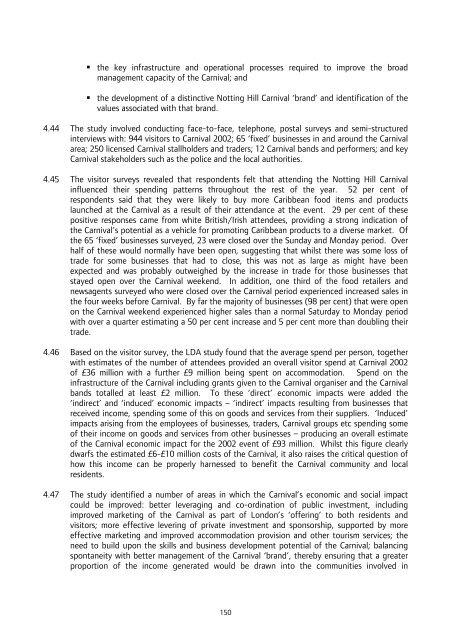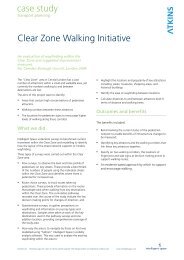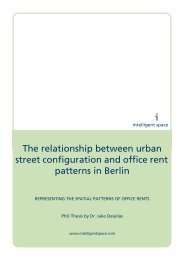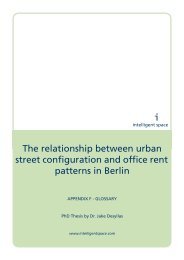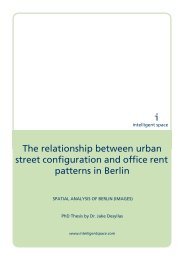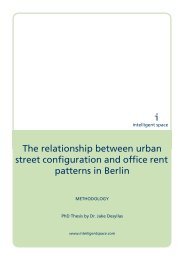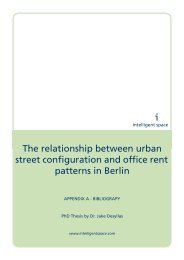Notting Hill Carnival Strategic Review - Intelligent Space
Notting Hill Carnival Strategic Review - Intelligent Space
Notting Hill Carnival Strategic Review - Intelligent Space
You also want an ePaper? Increase the reach of your titles
YUMPU automatically turns print PDFs into web optimized ePapers that Google loves.
• the key infrastructure and operational processes required to improve the broad<br />
management capacity of the <strong>Carnival</strong>; and<br />
• the development of a distinctive <strong>Notting</strong> <strong>Hill</strong> <strong>Carnival</strong> ‘brand’ and identification of the<br />
values associated with that brand.<br />
4.44 The study involved conducting face-to-face, telephone, postal surveys and semi-structured<br />
interviews with: 944 visitors to <strong>Carnival</strong> 2002; 65 ‘fixed’ businesses in and around the <strong>Carnival</strong><br />
area; 250 licensed <strong>Carnival</strong> stallholders and traders; 12 <strong>Carnival</strong> bands and performers; and key<br />
<strong>Carnival</strong> stakeholders such as the police and the local authorities.<br />
4.45 The visitor surveys revealed that respondents felt that attending the <strong>Notting</strong> <strong>Hill</strong> <strong>Carnival</strong><br />
influenced their spending patterns throughout the rest of the year. 52 per cent of<br />
respondents said that they were likely to buy more Caribbean food items and products<br />
launched at the <strong>Carnival</strong> as a result of their attendance at the event. 29 per cent of these<br />
positive responses came from white British/Irish attendees, providing a strong indication of<br />
the <strong>Carnival</strong>’s potential as a vehicle for promoting Caribbean products to a diverse market. Of<br />
the 65 ‘fixed’ businesses surveyed, 23 were closed over the Sunday and Monday period. Over<br />
half of these would normally have been open, suggesting that whilst there was some loss of<br />
trade for some businesses that had to close, this was not as large as might have been<br />
expected and was probably outweighed by the increase in trade for those businesses that<br />
stayed open over the <strong>Carnival</strong> weekend. In addition, one third of the food retailers and<br />
newsagents surveyed who were closed over the <strong>Carnival</strong> period experienced increased sales in<br />
the four weeks before <strong>Carnival</strong>. By far the majority of businesses (98 per cent) that were open<br />
on the <strong>Carnival</strong> weekend experienced higher sales than a normal Saturday to Monday period<br />
with over a quarter estimating a 50 per cent increase and 5 per cent more than doubling their<br />
trade.<br />
4.46 Based on the visitor survey, the LDA study found that the average spend per person, together<br />
with estimates of the number of attendees provided an overall visitor spend at <strong>Carnival</strong> 2002<br />
of £36 million with a further £9 million being spent on accommodation. Spend on the<br />
infrastructure of the <strong>Carnival</strong> including grants given to the <strong>Carnival</strong> organiser and the <strong>Carnival</strong><br />
bands totalled at least £2 million. To these ‘direct’ economic impacts were added the<br />
‘indirect’ and ‘induced’ economic impacts – ‘indirect’ impacts resulting from businesses that<br />
received income, spending some of this on goods and services from their suppliers. ‘Induced’<br />
impacts arising from the employees of businesses, traders, <strong>Carnival</strong> groups etc spending some<br />
of their income on goods and services from other businesses – producing an overall estimate<br />
of the <strong>Carnival</strong> economic impact for the 2002 event of £93 million. Whilst this figure clearly<br />
dwarfs the estimated £6-£10 million costs of the <strong>Carnival</strong>, it also raises the critical question of<br />
how this income can be properly harnessed to benefit the <strong>Carnival</strong> community and local<br />
residents.<br />
4.47 The study identified a number of areas in which the <strong>Carnival</strong>’s economic and social impact<br />
could be improved: better leveraging and co-ordination of public investment, including<br />
improved marketing of the <strong>Carnival</strong> as part of London’s ‘offering’ to both residents and<br />
visitors; more effective levering of private investment and sponsorship, supported by more<br />
effective marketing and improved accommodation provision and other tourism services; the<br />
need to build upon the skills and business development potential of the <strong>Carnival</strong>; balancing<br />
spontaneity with better management of the <strong>Carnival</strong> ‘brand’, thereby ensuring that a greater<br />
proportion of the income generated would be drawn into the communities involved in<br />
150


